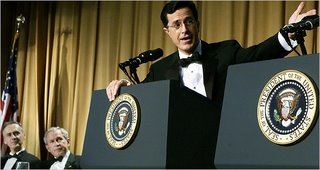My telecom astroturf phone call
Yesterday I got a telephone call from the United States Telecom Association. They wanted to enlist my help in lobbying my Congressperson (Rob Bishop, R-Utah). Apparently there is a bill in Congress right now that will allow telecom companies to provide me with more cable television competition and video options, with the potential to lower my bills. Wouldn't I like that?
I was a little annoyed that they called during Alex's nap, so I said, "What bill is that? Is it the COPE Act?"
Apparent confusion on the other end of the line. The pusher doesn't know.
A little more back-and-forth, and I finally come out with "I am extremely opposed to a tiered Internet." This gets him to hang up.
What's all this about? Under the guise of promoting competition and increasing consumer choice, as in the start of my lobbying phone call, the big telecom companies want the legal authority to discriminate between different kinds of Internet traffic and charge different amounts for different kinds of traffic. They've talked about doing this at least two ways: seeking rent from content providers like Google and asking them to bid to promote themselves against other providers in their market (like Yahoo, MSN search, etc.), and second, seeking rent from providers of certain kinds of multimedia, such as video.
If Yahoo outbids Google, then their site loads faster, their search responds more quickly, and their service appears to be better. Basically, at the level of the internet where data is being passed willy-nilly around the world, a telecom would examine every little chunk of data and send it on to This would provide an incentive to Yahoo to compete against Google in ways that don't enhance the quality of their tools for customers. Instead of spending bucks providing more relevant search results, they spend bucks on load times. And Google spends bucks on their load times back, until some kind of equilibrium is reached. And then those bucks go to a monopolist megacorporation. The winners are the one who gains a competitive advantage from the bidding war and the megacorporation who runs the auction.
The other half of this game is that the AT&T/SBC types want to start Internet cable companies (cf. the phone call I received), and they are in a position to prioritize Internet traffic in order to give themselves a competitive advantage against other services that serve video, notably Google Video and YouTube, and other nascent providers that haven't been invented yet. However, they need a bit of deregulation to do this re-prioritizing.
There's a name for large corporations trying to simulate a groundswell of public opinion in their favor. Punning on grassroots, it's called astroturfing. But they also lied about their real interests in the various pieces of Internet legislation making their way through Congress. So I don't hesitate to call them liars.
Learn more at Save the Internet. I note that a positive piece of legislation has made it out of committee. Hopefully the Congress can do the right thing with it.


